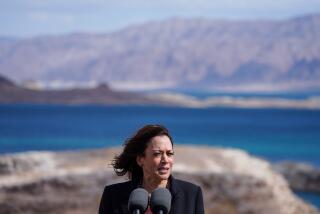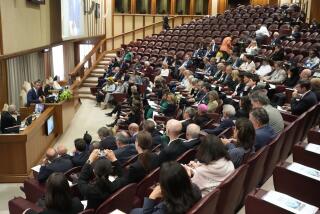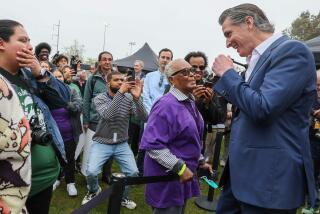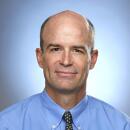Pope Francis, in leaked draft letter, calls for curbing global warming
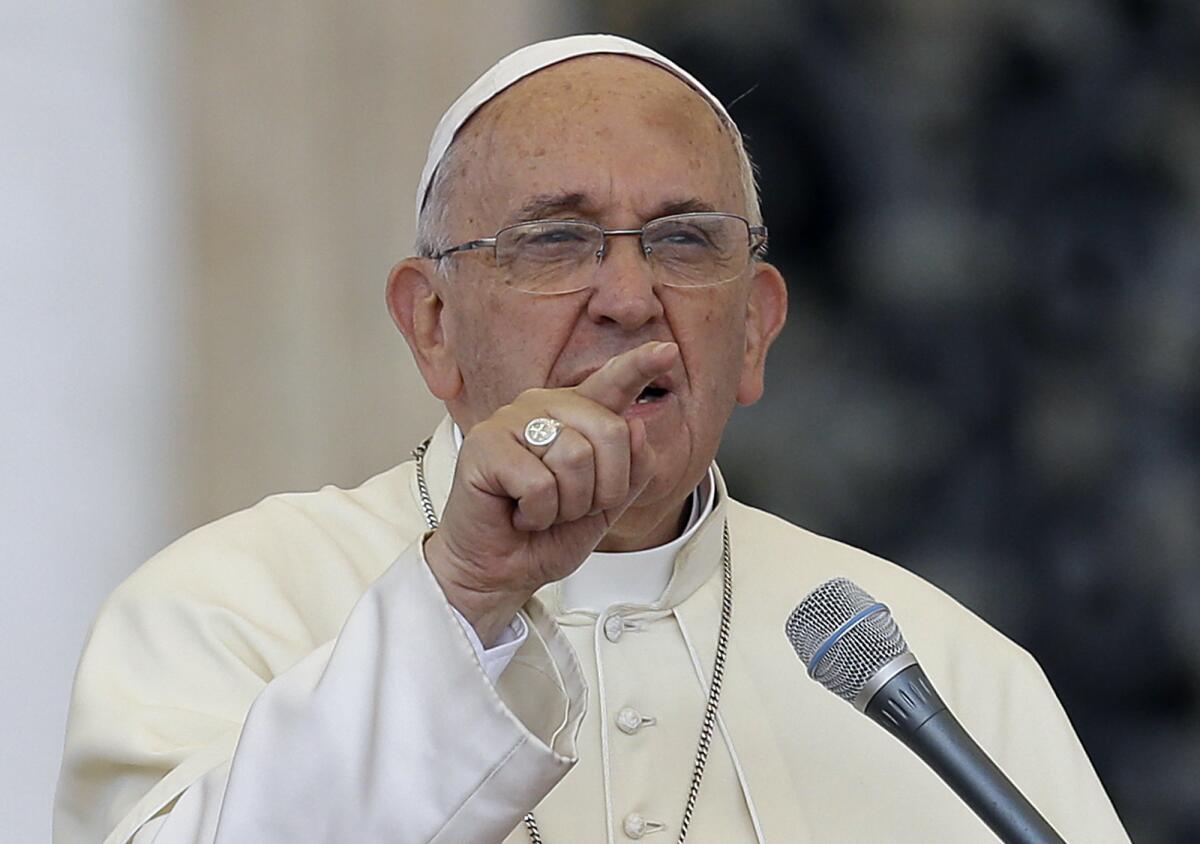
Pope Francis speaks in St. Peter’s Square at the Vatican on June 14, 2015.
A leaked draft of a highly anticipated letter on the environment by Pope Francis casts climate change as a threat largely caused by humans and urges action to reduce the emissions that cause global warming.
The Roman Catholic leader’s message, which is to be delivered Thursday in a letter called an encyclical, is expected to ripple across religious, political and economic debates.
Supporters hope it will galvanize international opinion before a major United Nations conference on climate change in Paris late this year. Political observers said it could roil the American presidential race by injecting religion into the already contentious politics of global warming. Others say it could increase questions about the morality and sustainability of a world economy driven by capitalism and consumption.
The 192-page draft, called “Laudato Si, on the care of the common home,” was posted online Monday in Italian by the magazine L’Espresso, sending news outlets scrambling to translate it. One passage says global warming has been “mostly” caused by “the great concentration of greenhouse gases (carbon dioxide, methane, nitrogen oxide and others)” that are “generated by human action” or “due to human activity.”
The draft says there is an “urgent” and “compelling” need for nations to reduce carbon emissions by replacing fossil fuels with new sources of renewable energy.
Viewed by some as a bold act by the pope to sway opinion on a controversial issue, the encyclical in many ways reflects a movement that has been growing for decades, sometimes on the margins, with some Catholic and Christian academics and individual church leaders and congregations increasingly making “creation care” a theological pursuit and a central ministry. In some cases, the approach has helped churches reconnect with people who felt Catholicism and other denominations had become too concerned with divisive cultural issues such as abortion and same-sex marriage. Many of those groups believe they have a formidable new ally.
“He is taking all the messages that we have been speaking about for 30 years and taking them to an international stage,” said Jessie Dye, a Catholic who is the program and outreach director of Earth Ministry, an ecumenical nonprofit in Seattle that has run a “greening congregations” program for two decades. “The most important thing to remember is that this is church teaching — this is not new.”
The Vatican confirmed Monday that the text released by L’Espresso was a draft of the encyclical but said it was “not the final text.” It will translate the final version into English and other languages and it asked other news outlets to refrain from publishing the draft “to respect professional standards.”
Few did, though some Catholic experts on the pope declined to talk Monday about the draft, saying they wanted to respect the Vatican’s plans.
Many experts have said in recent weeks that the encyclical is expected to establish climate change as a top papal priority at a time when scientists say it is still possible to prevent the worst of the damage it can do. Austen Ivereigh, author of “The Great Reformer: Francis and the Making of a Radical Pope,” said it would be the first encyclical “issued with the intention of influencing a political process.”
Previous popes have spoken in favor of environmental conservation, but Francis, who trained as a chemist before entering a seminary, has put greater emphasis on the issue, not least by naming himself after St. Francis, considered the patron saint of the environment. The pope has called polluting a sin and, according to one cardinal, said in a homily in February that “it is wrong and a distraction to contrast ‘green’ and ‘Christian.’”
Francis’ interest in the environment dates to his days as Jorge Bergoglio, the archbishop of Buenos Aires.
“In 2006 and 2007, there was a border problem between Argentina and Uruguay over pulp mills and questions over their environmental fallout,” Pablo Osvaldo Canziani, a scientist at Argentina’s National Scientific and Technical Research Council, said in an interview. “We did a report and Bergoglio tracked me down and rang me at my mother-in-law’s on Holy Friday to discuss it. That is how closely he was following it.”
Canziani said the future pope initially was most interested in social issues and the poor, “but when he realized science and the environment were connected to those issues, he got interested in the environment too.”
In a speech in October to the World Meeting of Popular Movements, a group of grass-roots activists and workers, Francis said, “Climate change, the loss of biodiversity, deforestation are already showing their devastating effects in the great cataclysms we witness, and you are the ones who suffer most, the humble, those who live near coasts in precarious dwellings or who are so vulnerable economically that, in face of a natural disaster, lose everything.”
Cardinal Peter Turkson of Ghana, who helped Francis draft the encyclical, has described the pope’s twin approach to helping the poor and the environment as “integral ecology.”
Father Thomas Reese, an analyst with the National Catholic Reporter, said Francis could prove an uncomfortable pope for conservative Catholics in the United States but also for some more liberal ones.
“Will the Republicans sit on their hands when he talks about climate, migrants and the poor?” Reese said. “And will the Democrats sit on their hands when he speaks about defending life?”
Father Thomas Massaro, who is dean of Santa Clara University’s Jesuit School of Theology, said American politics were not a primary concern for Francis.
“As I always say about popes, they let the political chips fall where they may,” Massaro said. “He’s following a religious agenda to call Christians to protect God’s creation.”
Times staff writer Yardley reported from Seattle and special correspondent Kington from Rome.
More to Read
Sign up for Essential California
The most important California stories and recommendations in your inbox every morning.
You may occasionally receive promotional content from the Los Angeles Times.
